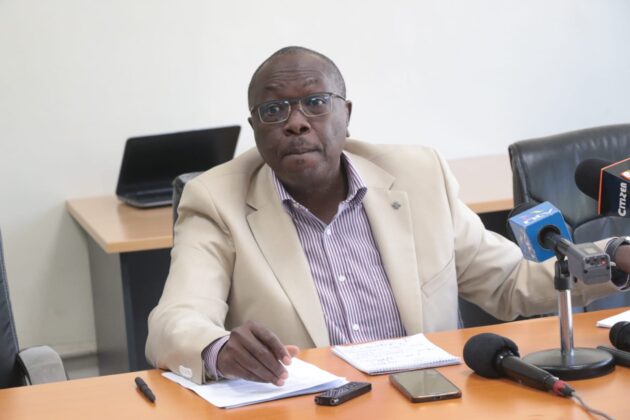
Rongo MP seeks special audit on roads and water projects undertaken until 2020 » Capital News
NAIROBI, Kenya, Jan 21 – The Auditor General may be directed to conduct a special audit on the utilization of exchequer releases for specific projects undertaken by the State Department of Roads and Water from the financial year 2019/2020 to date.
Rongo MP Paul Abour has proposed that the National Assembly resolve to initiate the special audit within six months from the resolution date, expressing concern that significant funds may be embezzled by the relevant authorities.
“Further resolves that the Auditor General shall submit a comprehensive report to Parliament within six months from the date of this resolution, detailing findings, gaps identified, and recommendations for corrective actions,” Abour stated.
The special audit aims to determine how allocated funds were utilized for the respective projects, uncovering potential cases of misapplication, diversion, and embezzlement of funds intended for mega projects.
The Auditor General will also assess whether the funds utilized correspond to the actual progress and value delivered by the projects.
“Highlight the accumulation of pending bills within these departments, their SAGAs, and parastatals, and identify their underlying causes,” the Rongo MP noted.
PFMA Act Amendments
Meanwhile, ministries, state departments, semi-autonomous government agencies (SAGAs), and parastatals may be required to open specific bank accounts for approved projects to address the perennial issue of pending bills.
Abour has sponsored proposed amendments to the Public Finance Management Act (PFMA), currently under review for approval by National Assembly Speaker Moses Wetangula.
In the proposals, the Rongo MP seeks to amend Section 17 of the PFMA Act to mandate that “all funds disbursed by the National Treasury to ministries, state departments, SAGAs, and parastatals for approved projects in the annual budget be deposited in designated project-specific bank accounts.”
“These accounts shall be opened and maintained solely for the management and execution of the approved projects to which the funds are allocated,” Abour stated.
The legislator argued that the proposals are timely, citing an alarming trend of state institutions diverting budgeted project funds to other demands within the national government.
Abour emphasized that this situation has led to the collapse of businesses owned by contractors and suppliers due to unpaid dues by the national government and devolved units.
Rogue accounting officers
State institutions have previously been warned against diverting public funds to finance non-priority projects, leaving contractors and suppliers waiting for months to receive their payments.
“Once the National Treasury disburses the funds, they are pooled by the procuring entity. When the contractor or supplier concludes the project or assignment, they are surprised to find the money is unavailable, and it automatically becomes a pending bill,” Abour said.
Abour also proposes reinforcing the amendment by introducing stringent penalties for accounting officers who fail to comply. These penalties include a five-year jail term or a fine equivalent to 150 percent of the misused amount.
The legislator further plans to amend Section 197 of the PFMA Act to impose penalties on banks found to have facilitated unauthorized withdrawals or transfers from project-specific accounts.
“Any AIE holder or accounting officer found to have diverted funds from project-specific bank accounts for unauthorized uses shall face immediate suspension and potential dismissal from public service, subject to investigation,” Abour asserted.
Pending Bills
The latest Controller of Budget (CoB) data indicates that the country’s pending bills to various entities and individuals stood at Sh622.82 billion as of June 30, 2023.
The arrears are distributed across various entities, including state corporations, which owe suppliers Sh379.81 billion, followed by ministries, departments, and agencies (Sh136.45 billion).
During a similar period last year, corporations owed suppliers Sh443.6 billion, while MDAs owed Sh179.22 billion.
“MDAs’ pending bills are primarily historical, comprising Sh100.73 billion (74 percent) for recurrent expenditure and Sh35.72 billion (26 percent) for development expenditure,” the CoB report stated.
“In FY 2023/24, MDAs’ pending bills declined by Sh42.18 billion, comprising Sh30.81 billion for recurrent and Sh11.37 billion for development expenditure,” it continued.
“The State Corporations’ pending bills include payments due to contractors/projects, suppliers, unremitted statutory deductions, and pension arrears for the Local Authorities Pension Trust. The highest percentage of the State Corporations’ pending bills (Sh235.00 billion as of June 30, 2024) was for contractors/projects at 62 percent, followed by pension arrears at 13 percent.”
In June 2023, the Cabinet approved a Pending Bills Verification Committee to audit the government’s uncleared bills between June 2005 and 2022.